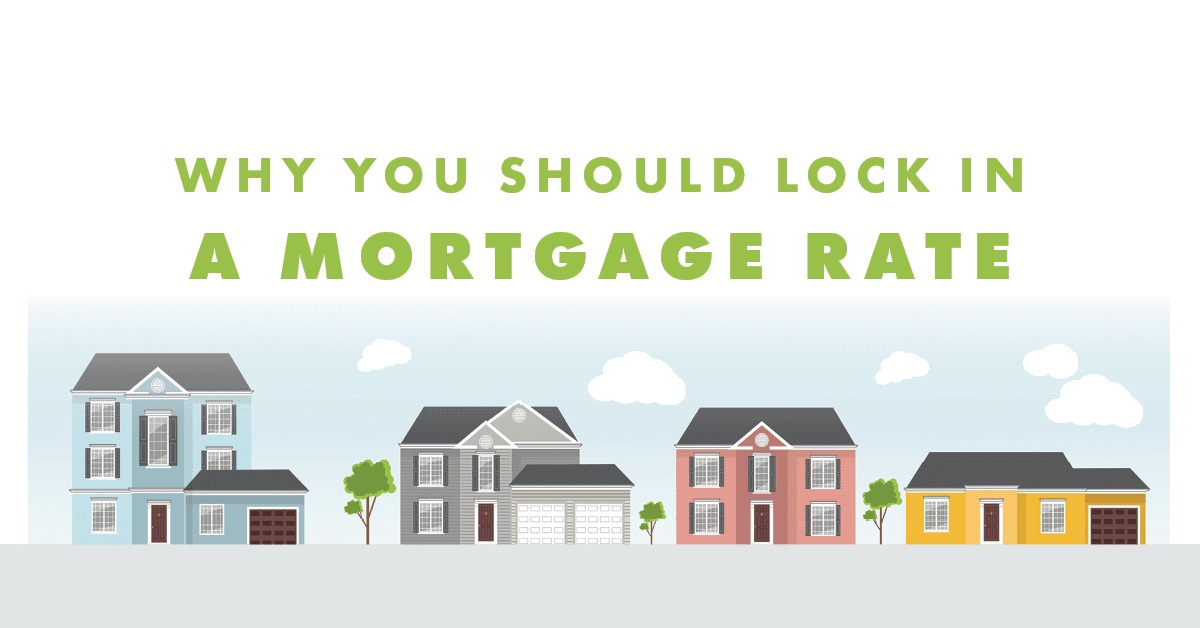
By Alena Kairys
Feb 10, 2020Note: This blog was originally published in August 2013 and has been updated.
Though there are several factors that impact how much you’ll pay for your mortgage, one of the most important is your mortgage interest rate. When you’re preparing to purchase a home, the interest rate you are quoted on the day of your initial inquiry with a mortgage company will be subject to daily or weekly fluctuations, meaning that rate can and will change over time. This is because mortgage interest rates are partially determined by the Federal Reserve and the bond market, which may rise or fall. If you’re ready to buy a home, learn why you should lock in a mortgage rate and when might be the right time to lock.
A mortgage rate lock does what it says it does: it freezes the current rate so it won’t increase or decrease during the lock period. This is a great way to save money in the long run if you see a rate you like. Bryan Harrison, Branch Manager at NFM Lending, commented, “If you have a rate that you are comfortable with and you can afford the monthly payment, you should talk to your Loan Originator and get the lock in writing”.
Lock periods are commonly offered for 30 or 60 days, but you can ask your lender for shorter or longer options. The rate you choose to keep will be honored until the lock period expires. Agreeing to a longer lock period often comes at a higher cost; ask your lender for an estimate on how long closing can take so you can decide on the best lock period.
While the rate lock will be valid during the timeframe, be aware that your rate may change if your credit score drops, you decide to take another loan type, or if there is an issue during the loan’s underwriting. Additionally, because a rate lock prevents you from being affected by rate hikes, it also prevents you from being able to cash in should rates fall. Some rate locks may have a float-down option, which means you can take advantage of lower rates during the lock period; speak with your lender to see if they offer this.
Once you’ve locked your rate, be aware that the rate could be the same for the duration of the loan (a fixed rate loan), or it could change periodically (a variable rate loan). Speak with your Loan Originator about the difference and the benefits of both types.
A rate lock that establishes a monthly mortgage payment you are comfortable with and gives you peace of mind is probably the right one for you. When you encounter a great interest rate, don’t hesitate – lock it down.
If you have any questions or want more information about locking in a mortgage rate, contact one of our Licensed Mortgage Loan Originators. If you are ready to begin the homebuying process, click here to get started!
*Other terms and conditions apply. A 1 point up-front fee may be collected from the borrower at time of lock, which will be applied to the borrower’s closing cost at settlement. Program not available in all areas. Offers may vary and are subject to change at any time without notice.
These blogs are for informational purposes only. Make sure you understand the features associated with the loan program you choose, and that it meets your unique financial needs. Subject to Debt-to-Income and Underwriting requirements. This is not a credit decision or a commitment to lend. Eligibility is subject to completion of an application and verification of home ownership, occupancy, title, income, employment, credit, home value, collateral, and underwriting requirements. Not all programs are available in all areas. Offers may vary and are subject to change at any time without notice. Should you have any questions about the information provided, please contact us.